- Home
- Tony Parsons
Valley of the White Gold
Valley of the White Gold Read online
PENGUIN BOOKS
Valley of the White Gold
A.D. (Tony) Parsons, OAM, has worked as a professional sheep and wool classer, an agricultural journalist, a news editor and rural commentator on radio, a consultant to major agricultural companies, and an award-winning stud breeder of animals and poultry. He owned his first kelpie dog in 1944, and in 1950 he established ‘Karrawarra’, one of the top kelpie studs in Australia. In 1992 he was awarded the Order of Australia Medal for his contribution to the propagation of the Australian kelpie sheepdog.
Since 1947 Tony has written hundreds of articles, many in international publications. His technical publications include Understanding Ostertagia Infections in Cattle, The Australian Kelpie, The Working Kelpie and Training the Working Kelpie, now regarded as classic works on the breed. He is the author of four bestselling novels, The Call of the High Country, Return to the High Country, Valley of the White Gold and Silver in the Sun.
Tony lives with his wife not far from Toowoomba in Queensland and successfully showed merino sheep and wool until 2005. He still maintains a stud of kelpies.
Praise for VALLEY OF THE WHITE GOLD
‘This book comes from the heart of country Australia in more
ways than one. There is much to be said for listening
to a genuine voice of rural Australia’
COURIER MAIL
‘Great yarn’
NEWCASTLE HERALD
‘Resonates with great familiarity and fondness for the traditional values of rural Australia’
ADELAIDE ADVERTISER
‘Anyone who is a fan of McLeod’s Daughters will love this novel.
If you’ve ever wanted to experience life on an Australian
sheep station, this book will take you there’
SOUTH COAST REGISTER
‘I never thought I would enjoy a book about farming, but hell must have frozen over, because I liked this. Although the heart-warming book centres on a sheep-grazing town, it has many layers and explores numerous issues such as family heritage and expectations, domestic violence, equal opportunities, Australian history, and the trials and tribulations of life on the land’
SUNSHINE COAST DAILY
TONY PARSONS
Valley of the
White Gold
Penguin Books
PENGUIN BOOKS
Published by the Penguin Group
Penguin Group (Australia)
250 Camberwell Road, Camberwell, Victoria 3124, Australia
(a division of Pearson Australia Group Pty Ltd)
Penguin Group (USA) Inc.
375 Hudson Street, New York, New York 10014, USA
Penguin Group (Canada)
90 Eglinton Avenue East, Suite 700, Toronto ON M4P 2Y3, Canada
(a division of Pearson Penguin Canada Inc.)
Penguin Books Ltd
80 Strand, London WC2R 0RL England
Penguin Ireland
25 St Stephen’s Green, Dublin 2, Ireland
(a division of Penguin Books Ltd)
Penguin Books India Pvt Ltd
11 Community Centre, Panchsheel Park, New Delhi – 110 017, India
Penguin Group (NZ)
67 Apollo Drive, Rosedale, North Shore 0632, New Zealand
(a division of Pearson New Zealand Ltd)
Penguin Books (South Africa) (Pty) Ltd
24 Sturdee Avenue, Rosebank, Johannesburg 2196, South Africa
Penguin Books Ltd, Registered Offices: 80 Strand, London, WC2R 0RL, England
First published by Penguin Group (Australia), 2006
3579108642
Text copyright © Tony Parsons 2006
The moral right of the author has been asserted
All rights reserved. Without limiting the rights under copyright reserved above, no part of this publication may be reproduced, stored in or introduced into a retrieval system, or transmitted, in any form or by any means (electronic, mechanical, photocopying, recording or otherwise), without the prior written permission of both the copyright owner and the above publisher of this book.
penguin.com.au
ISBN: 9780857967893
Chapter One
Dan Stafford sat in his Holden utility and filled his pipe as he waited for the wethers to appear through the gap in the hills. His son, Jim, and two daughters, Bella and Beth, were up there somewhere. They had left on their horses pre-dawn to catch the wethers on their night camps before they moved away to feed through the hills. Sheep usually sought higher ground for their night camps and it was a lot easier mustering them in one or two big mobs than spending all day collecting them in dozens of small groups. Dan would have liked to be up there with his kids but riding was too hard on his hip these days.
He got out of the ute and threw a few more sticks on the fire. He filled the billy from his waterbag, tossed in some tea leaves and went back to the vehicle. There was a holding yard in the next paddock, and when they had the wethers yarded, they’d have breakfast. Dorothy had packed the tucker box and there’d be steak, chops, sausages and eggs and thick slabs of bread to make toast. Dan knew that his kids liked these breakfasts better than almost anything else.
He called his children his kids but they weren’t kids any longer. Jim was twenty-five, Bella almost twenty-three and Beth twenty-one.
Dan switched on the car’s radio to get the latest forecast. It promised fine weather for the next two days followed by showers. As golden light flooded the countryside and made green the purple-black hills, he turned the radio off. This would be the last time Bella would be mustering on Mattai, Dan recognised, because in a few days time she would marry Wally Osborne and move to Glen Avon, the property that adjoined his further up the valley of the Half Moon.
The Half Moon Creek meandered right through the valley. The best country was adjacent to the creek because over the aeons, soil had been washed from the hills down onto the lower country. This had been the first country taken up by the original settlers. Dan knew he was lucky to own Mattai. It may not be the most beautiful country, and life had been tough at times, but the property was his life.
Mattai had a mix of lower and hilly country. From the paddocks next to the creek, where Dan ran his Herefords and his young rams and some of his stud ewes, there were perhaps two thousand acres of undulating country that gave way to some fairly steep hills. It was here that Dan ran his superfine wethers.
Dan lifted his eyes to the hills and saw, far off, a small movement in what the family called ‘the gap’, as the first of the wethers streamed down the hill towards the lower country. They were due to be drenched and Dan reckoned he might just as well do them while he still had Bella to help with the muster. There was no doubt he’d miss Bella, but he knew you couldn’t hold your daughters to you forever. They wanted husbands and homes of their own. At least she wasn’t going far away, only a bare three miles. He hoped she’d be right with Wally Osborne.
Bella was a great girl, maybe not quite as good as her sister stock-wise, but pretty damned good. Bella was marginally better on a horse than Beth, and maybe she could have got to the top with horses, but he reckoned he’d been right to block her. He’d refused to cough up the money to allow her to buy better horses so she could compete at the bigger shows farther afield. Dan, who knew from his army days what men were like where good-looking young women were concerned, had been totally opposed to either of his daughters wandering far from the fold. He saw how men looked at Bella and Beth and he wasn’t having any of that, no thank you. The local technical college was as far as the Stafford girls had been allowed to go, after completing high school. Bella had done a dressmaking course and Beth was doing woolclassing, as Jim had done before her. Dan reckoned it was pretty good the wa
y Bella had taken to sewing and making flash clothes.
As for Wally Osborne, well, Dan didn’t know what to make of him. Wally had been well educated, and came from the right sort of family, but he wasn’t so hot when he’d had a bit to drink. Still, it wasn’t really Dan’s business. At the very least, he reckoned that anyone who loved cricket as much as Wally had to have a bit going for him.
Now and again Dan wondered why Osborne had left Tasmania, where he’d owned a fine-wool place, to resettle in the Half Moon. But of course people did that sort of thing all the time. The Staffords, however, had been in the Half Moon almost since the beginning of white occupation in Mudgee – getting on for one hundred and fifty years.
Dan put a bit more water in the billy as the wethers came into view in the next paddock. Beth had her two kelpies, Trump and Troy, and Jim his two kelpie-collie cross dogs, Jake and Meg. Dan watched as the dogs wheeled the mob and manoeuvred them into the big holding yards.
Jim and the girls tethered their horses to a rail of the fence while their dogs drank from the water trough. Both girls were dressed in blue jeans and chambray shirts, with light pullovers around their shoulders to protect against the morning chill. And they both wore the oyster-grey wide-brimmed hats they were rarely seen without.
‘Got the brekky on, Dad?’ Jim asked as he walked across to the fire. ‘I could eat a horse and chase the rider.’
‘I’ve just put it on,’ Dan said.
‘I’ll look after it, Dad,’ Beth chipped in, aware that his hip ached when he squatted. Dan had had a fall from a horse in Mattai’s higher country and, although he threatened to have his hip seen to, so far he hadn’t. Too busy, he told everyone.
‘Have any trouble?’ Dan asked, directing his question at all of his children.
‘Not really,’ Jim answered. ‘The distant lot had begun to trickle down but not far. They travelled well.’
Dan was very proud of his family. He never came right out and said so, but his wife, Dorothy, was aware of his feelings. Jim was a chip off the old block, lean and raven-haired with keen, dark-grey eyes. For Jim, the sheep at Mattai came first and everything else – except perhaps cricket – came a distant second. Superfine wool was the first thing Jim and his father thought about when they got up in the morning and it was still on their minds when they retired for the night. There were people in Mudgee who thought that Dan was a bit around the bend, and that Jim was likely to end up the same way because it was in his breeding. But to be fair, Jim had wider interests than his father. He’d been educated in Sydney and realised that there was a life beyond the Half Moon. He was also a keen sportsman and loved country music.
Jim was a nice-enough-looking young man, and decent too. But Dan had never quite been able to believe he was also the father of two such beautiful young women. The girls were as tall as Jim and pretty near as good as him at just about everything around the property. It was really something to know how admired they were wherever they went. They were dark-haired and brown-eyed like their mother and had been tall and coltish up to their mid-teens, after which they both blossomed into incredibly good-looking young women. Wherever they went, Bella and Beth were the focus of all eyes. They usually wore jeans with either plain or checked blouses or even men’s shirts. They looked fantastic no matter what they wore. The passage of the jeans-clad girls in Mudgee or Bathurst or Dubbo, or in company with their father or brother down the lanes of the local saleyards, usually caused a cessation of activities as every male between the ages of fourteen and eighty moved closer to get a better look. Bella was the most exuberant of the pair, but more of a tomboy and with a slighter figure. For sheer good looks it was generally conceded that Beth was slightly superior, though not by much, and had taken over from her mother as the most beautiful woman in the district.
Looking at them now, Dan felt that his life would have been a lot poorer if he hadn’t had two such fine daughters. Of course, he’d always known they’d get married and leave one day, and Bella would be gone within the week, but, as Dorothy said to him, you never really lose a daughter.
A few people wondered why Dorothy, who could have had the pick of the young men of the area, including the son of one of the local squattocrats, had married Dan Stafford, a man so obviously obsessed with the sheep business. There were stories that Dorothy’s father, Fred Ryner, had pushed her towards Dan because the two men were friends and because Dan had let Fred have some of his best sale rams. Dorothy would have denied that her father had influenced her. She’d been a very practical young woman and Dan was an eligible bachelor who owned a large property and a noted stud of fine-wool sheep. All she had wanted was security and a family of her own, whether or not she was head over heels in love.
When the children were older, Dorothy joined the View Club and the Red Cross and was on the Committee of the Mudgee Show. She had also been heavily involved with the local Parents and Citizens Assocation in Cudgee. These activities, and keeping her garden up to the mark, helped to keep her occupied, and of course she entertained the many visitors who came to inspect the Mattai rams. Dorothy was aware that she didn’t have the striking looks of her youth but she was still a fine-looking woman who always dressed well, and was still physically attractive to her husband – and that wasn’t something every middle-aged woman could say.
Like many of Australia’s great women, Dorothy had become a part of the bush way of life. Other women looked up to her. She had brought up three decent children and she had a lot of commonsense. She’d become a pillar of the community through her involvement in local institutions, and her sense of humour always stood her in good stead.
Looking back over the years, Dorothy felt that she’d made the right decision when she’d said ‘yes’ to Dan Stafford. It was true that she hadn’t experienced the kind of romantic love she had read about in books, but she knew she wasn’t on her own with this. What remained now was to see that her three children were happy and in good marriages.
Bella set out plates and mugs on the back of the ute and Beth brought across the meat and eggs. Jim poured out the tea and helped himself to milk from the bottle.
‘I’ll miss you, Bella,’ Dan said after a little while.
Bella blinked back a tear. It was the most uncharacteristic thing her dad had ever said to her. He’d always been a rather stern and bossy father who’d set standards for her and Beth far stricter than most daughters had to wear, though she was aware that he’d always meant well.
‘Will you?’ she asked rather awkwardly.
‘Yes, I will,’ he said gruffly. ‘I hope it works out okay for you and Wally.’
Bella was going to miss her family, too. Before she’d met Wally, she’d thought about leaving home and going to Sydney with the aim of one day owning her own fashion business, but she was too close to her siblings to leave them. She also loved her horses too much and there was no way she could take them to Sydney. And then there was her mum, whom she loved dearly even if she was irritated by the way she didn’t always stand up to Dan like Bella thought she should. Her father was just too much at times. Well, for a lot of the time. Not that the family went without anything. There were some mean men in the Half Moon but Dan Stafford wasn’t one of them. He didn’t throw money around for high-class horses, but it was there for most other things. Certainly for clothes and for good food and for when they went to Sydney for the wool sales and the Royal Show.
But Dan was tough on young men and there had been none good enough for Bella or Beth. How could you ever know what a fellow was like if your father wouldn’t allow you to go out with him? There weren’t many men on offer in the Half Moon and Dan had a thing about outsiders. (By and large, the fine-wool growers seemed to intermarry a lot.) It was just as Bella was beginning to despair of ever finding someone her dad would approve of that Wally Osborne bought Glen Avon, adjoining Mattai.
‘You’d better get on back to the house as soon as you finish eating, Bella,’ Dan continued. ‘We’ll look after the drenching and g
etting the sheep back.’
‘Are you sure, Dad?’ Bella asked.
‘Course I’m sure. Mum says you’ve still got some sewing to do. Away you go.’
Bella wiped up the last of her eggs with some crusty bread, then untethered her horse and swung into the saddle. Dan had to admit that she looked a treat on a horse. He watched as she cantered away on the chestnut gelding and wished for the thousandth time that he didn’t have a dodgy hip. He would love to ride again.
Dan, Jim and Beth worked all morning and then stopped for an early lunch with a mug of steaming tea. By mid-afternoon all the wethers were drenched and, leaving their father, Jim and Beth set off together to take the wethers back to the hills.
‘That was so nice what Dad said to Bella,’ Beth commented. ‘I could hardly believe it.’
‘Yeah, you’re right,’ Jim agreed.
‘It’s a pity he was so hard on her at times… and me, for that matter,’ Beth said wistfully.
‘You never went without anything,’ Jim replied, ever loyal to his father.
‘No,’ Beth admitted a little grudgingly, ‘but now he’s letting Bella marry Wally, of all people.’
‘Dad couldn’t very well stop her, could he? Watch Troy, Beth. He’s run around too far.’ Jim and Beth were very competitive where their dogs were concerned and Jim, in particular, was always ready to have a shot at Beth about her dogs. This usually provoked a good-natured argument, which helped to while away the time.
‘No he hasn’t, Jim. A few wethers have run ahead in the scrub and Troy’s seen them,’ Beth said in defence of her dog.
‘So he has,’ Jim admitted. He might criticise his sister at times, but he was very proud of the fact that she was the best female handler around. Beth kept him on his toes and, although he usually beat her at sheepdog trials, she had beaten him occasionally and was getting better all the time. If she wasn’t so one-eyed about only having kelpies, she’d win a lot more trials. There was no doubt kelpies were much harder to handle for trial work than border collies or collie crosses. But Beth wanted to win with kelpies and that’s all there was to it. And Jim had to admit they were darned good sheepdogs.

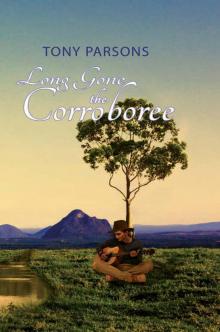 Long Gone the Corroboree
Long Gone the Corroboree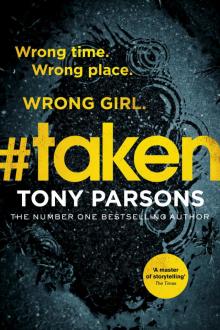 #taken
#taken The Family Way
The Family Way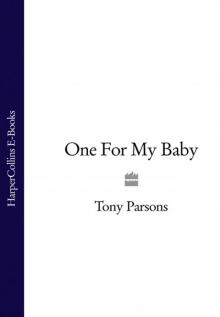 One For My Baby
One For My Baby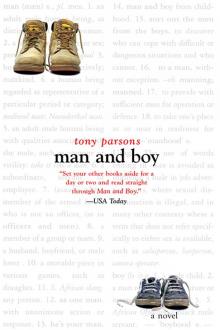 Man and Boy
Man and Boy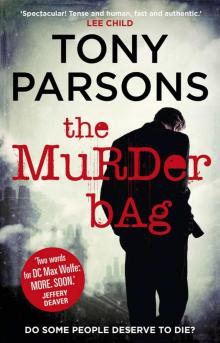 The Murder Bag
The Murder Bag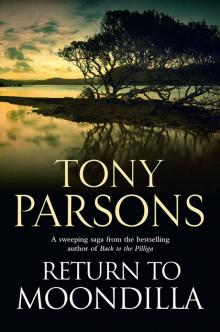 Return to Moondilla
Return to Moondilla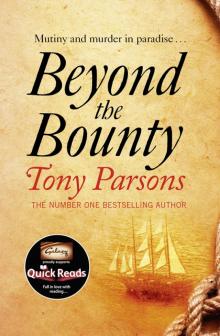 Beyond the Bounty
Beyond the Bounty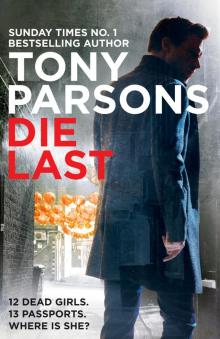 Die Last
Die Last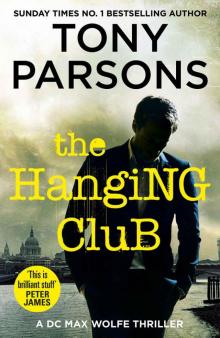 The Hanging Club (DC Max Wolfe)
The Hanging Club (DC Max Wolfe)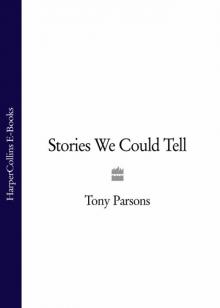 Stories We Could Tell
Stories We Could Tell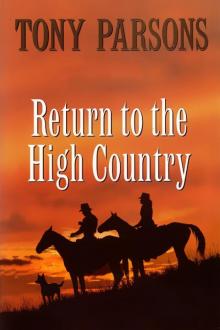 Return to the High Country
Return to the High Country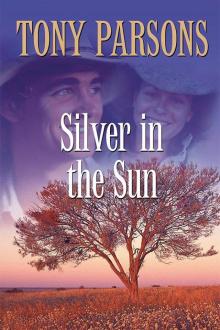 Silver in the Sun
Silver in the Sun My Favourite Wife
My Favourite Wife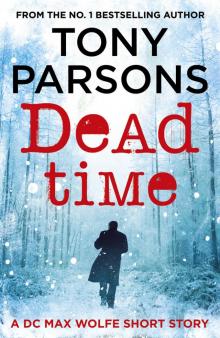 Dead Time
Dead Time Girl On Fire
Girl On Fire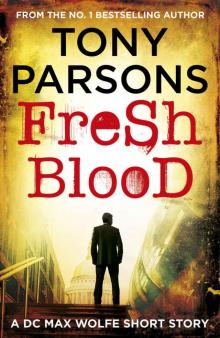 Max Wolfe 02.5 - Fresh Blood
Max Wolfe 02.5 - Fresh Blood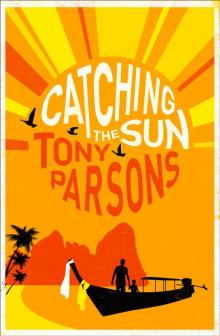 Catching the Sun
Catching the Sun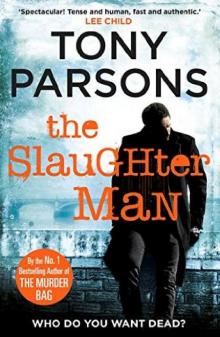 The Slaughter Man
The Slaughter Man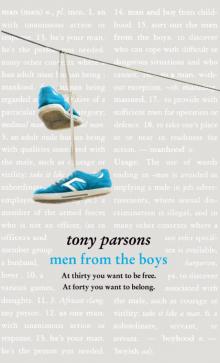 Men from the Boys
Men from the Boys Man and Wife
Man and Wife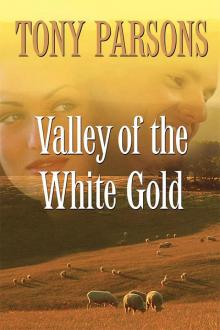 Valley of the White Gold
Valley of the White Gold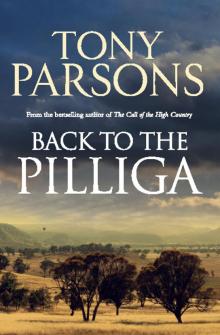 Back to the Pilliga
Back to the Pilliga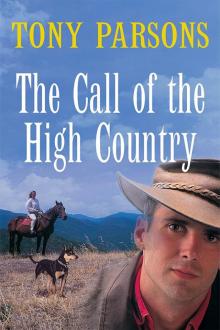 The Call of the High Country
The Call of the High Country Girl On Fire_DC Max Wolfe
Girl On Fire_DC Max Wolfe